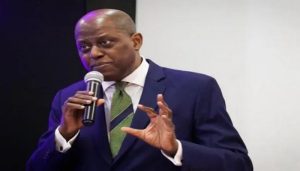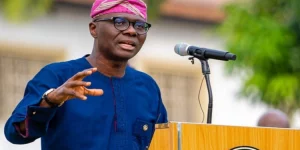
By David Akinmola
For Nigeria to tackle its debt and revenue challenges the need to operate an efficient tax administration that would ensure greater compliance with remittances and shun all forms of evasions in the system has been stressed.
Director General of the Debt Management Office (DMO), Ms. Patience Oniha, while addressing Journalists at a conference held in Lagos at the weekend said revenue challenge has remained one of the most critical policy issues of the federal government which is currently threatening the nation’s debt sustainability.
Recall that the current revenue problem is compounded by leakages such as an increase in oil theft and petrol subsidy, both of which have significantly reduced the revenue from oil sales that used to account for the bulk of government revenue.
Oniha noted that the outlook of both the local and international markets are already becoming tighter with rising interest rate.
Therefore, she stressed the need for the country to urgently moderate its new borrowing and ensure that public debt is sustainable by accelerating its revenue base to shore up non-oil revenue and rationalizing expenditure.
Oniha pointed out that although the nation’s total public debt to GDP of 23.06.per cent as of June 2022, is still within Nigeria’s self-imposed limit of 40.per cent and the World Bank/IMF recommended a limit of 55 per cent for countries within Nigeria’s peer group and 70 per cent for ECOWAS countries.
However, she argued that debt service to revenue is extremely high, an indication that urgent steps needed to be taken to boost the nation’s revenue and enhance public debt sustainability.
“Nigeria’s public debt stock has grown consistently over the past decades and even faster in recent years. Consequently, debt
service has continued to grow.
“Nigeria’s low revenue base compounded by dependence on crude oil resulted in budget deficits over the past decades. Efforts at increasing non-oil revenue are yielding positive results.
She added: “Dependence on borrowing and low revenue base is now threatening debt sustainability. With a low debt to GDP ratio, Nigeria’s debt service to revenue ratio would have been low if revenue was strong.”
According to her, most countries around the world have placed more emphasis on taxation as a principal source of funding for the government while the reverse is the case in Nigeria.
Aside from taxation as a source of revenue generation, the DMO boss also stated that borrowings must be tied to projects that would generate commensurate revenues to service loans used to finance the projects.
Furthermore, she also stated that physical assets such as idle or under-utilised properties could be redeveloped for commercialisation to generate revenue.
“Urgent Actions are required to moderate the level of new borrowings and ensure that the public debt is sustainable through accelerating the growth in revenues,
sale of government assets (privatization).
“The outlook shows that both the local and international markets are becoming tighter and interest rates are rising, thus priority
should be less on borrowing and more on revenues from oil and non-oil sources,” she said.






